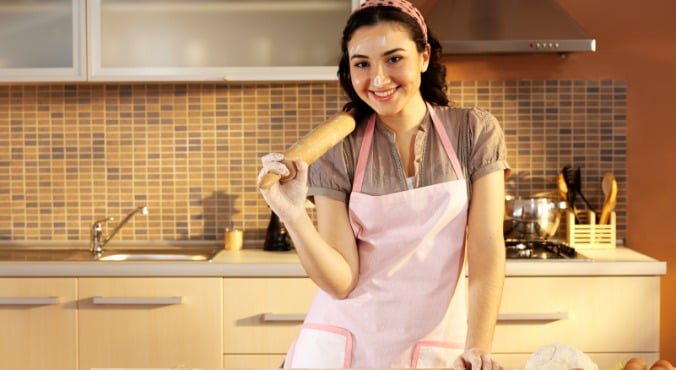
Image: iStock
It’s easy to see why so many people are obsessed with baking and cooking.
Anyone who regularly whips up a batch of cupcakes will tell you there’s something therapeutic about following (or improvising) a recipe, preparing and combining ingredients, then eagerly awaiting the finished result while delicious aromas sneak out of the oven.
Frozen snacks that’ll keep you cool – without giving you a sugar high.
Of course, it also goes without saying that licking raw batter off a pair of beaters is one of life’s simplest, yet greatest joys. Same goes for sampling that first spoonful of a fresh bolognaise sauce you’ve had simmering on the stovetop for an hour.
As if these aren’t good enough reasons to get your Nigella on, it turns out baking and cooking can have a deeper effect on your frame of mind than just delivering an icing sugar-induced high.
Baking inspiration
According to a report by the Wall Street Journal, health care clinics and counsellors in the States have started incorporating culinary classes into therapy for people with mental health problems like depression, anxiety and addiction. Often, these classes are undertaken in conjunction with more traditional forms of therapy, like medication or counselling.
Could there be a drug-free solution to anxiety?
These therapists believe redirecting the mind to focus on following a recipe can alleviate stress and negative thoughts, and contributes to improved self-esteem. The WSJ reports:
“Psychologists say cooking and baking are pursuits that fit a type of therapy known as behavioural activation. The goal is to alleviate depression by boosting positive activity, increasing goal-oriented behaviour and curbing procrastination and passivity.”





























































































